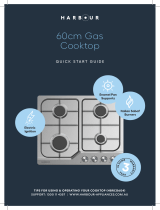Technika TGC6GWBGFS gas cooktop offers precise flame control with its intuitive knobs, allowing you to adjust the heat intensity effortlessly. Equipped with different burner sizes, including a triple flame wok burner, it accommodates various cooking needs, from simmering delicate sauces to searing steaks. Safety features like flame failure protection and ignition device ensure peace of mind while cooking.
Technika TGC6GWBGFS gas cooktop offers precise flame control with its intuitive knobs, allowing you to adjust the heat intensity effortlessly. Equipped with different burner sizes, including a triple flame wok burner, it accommodates various cooking needs, from simmering delicate sauces to searing steaks. Safety features like flame failure protection and ignition device ensure peace of mind while cooking.




















-
 1
1
-
 2
2
-
 3
3
-
 4
4
-
 5
5
-
 6
6
-
 7
7
-
 8
8
-
 9
9
-
 10
10
-
 11
11
-
 12
12
-
 13
13
-
 14
14
-
 15
15
-
 16
16
-
 17
17
-
 18
18
-
 19
19
-
 20
20
-
 21
21
-
 22
22
-
 23
23
-
 24
24
-
 25
25
-
 26
26
-
 27
27
-
 28
28
-
 29
29
-
 30
30
Technika TGC6GWBGFS gas cooktop offers precise flame control with its intuitive knobs, allowing you to adjust the heat intensity effortlessly. Equipped with different burner sizes, including a triple flame wok burner, it accommodates various cooking needs, from simmering delicate sauces to searing steaks. Safety features like flame failure protection and ignition device ensure peace of mind while cooking.
Ask a question and I''ll find the answer in the document
Finding information in a document is now easier with AI
Related papers
-
Technika TGC9GLWFSS User manual
-
Technika H640STXFPRO-3 User manual
-
Technika H640STXFPRO-3 User manual
-
Technika H950SLTXFPRO User manual
-
Technika TB75GWFSS-3 User manual
-
Technika TB64GFSS-3 User manual
-
Technika TB95GWFSS-3 User manual
-
Technika TB64ESS-5 User manual
-
Technika TGC6GBK User manual
-
Technika B6GEFTSS-5 User manual






























